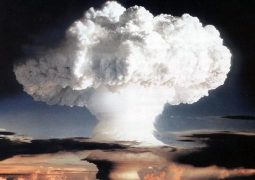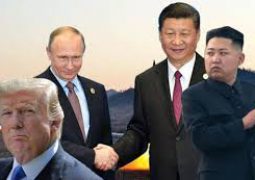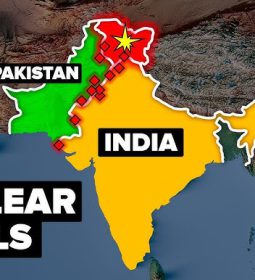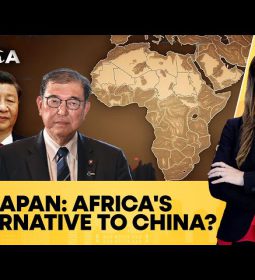Japan: Baffled by Trump, Chinese propagandists waffle ahead of Osaka
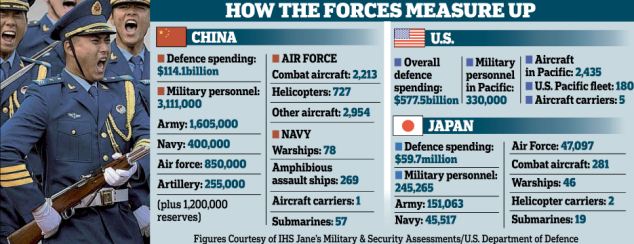
Surprise TV airing of pro-US romance movie reflects Xi Jinping’s wavering
TOKYO — As he heads to the Group of 20 summit in Osaka and a planned meeting with U.S. President Donald Trump, Chinese President Xi Jinping has been struggling to come up with a coherent strategy. This inner conflict was reflected in two conflicting messages in movies aired by Chinese state TV.
On June 19, China Central Television dropped its originally scheduled program to broadcast a pro-U.S. film from 20 years ago.
The movie, “Lover’s Grief over the Yellow River,” is based on an American pilot who makes a forced landing near the Great Wall after battling with Japanese warships during World War II. The heroine is an English-speaking female soldier of the Chinese Communist Party’s army. The characters fall in love, and the American and Chinese actors who portrayed them went on to be married in real life as well.
The two later divorced, but for these reasons the movie is familiar to many Chinese.
CCTV’s broadcasting of the Sino-American romance immediately after a telephone conversation between Xi and Trump sparked a torrent of speculation over Chinese authorities’ intentions. The consensus seemed to be that China is making a fervent love call to the U.S.
Or is it? A month earlier, CCTV abruptly rearranged its programming for three days in a row to air anti-U.S. movies. The classics it broadcast were about the “War to Resist America and Aid Korea,” as the 1950-1953 Korean War is known in China.
After “new China,” or the People’s Republic of China, was founded in 1949, it sent “volunteer soldiers” to North Korea to fight on the North’s side. Many lives were lost.
In China, even entertainment programming is affected by domestic and external politics as interpreted by the party. Fictional TV shows are an important tool to manipulate public opinion toward party-devised political ideologies.
The party’s propaganda department is headed by Huang Kunming, one of Xi’s close aides. The men came to know each other while Xi was serving as Zhejiang province’s top official. Huang was promoted to the 25-member Politburo in 2017.
It has been a month and a half since Beijing sent back to Washington an edited and largely gutted draft trade deal, surprising and angering Trump. The U.S. president subsequently announced hiking punitive tariffs on Chinese goods.
CCTV’s broadcasting of anti-U.S. movies for three consecutive days in mid-May came shortly after these events. The films were designed to send viewers a message: “We are ready to fight the U.S. thoroughly.”
But that hard-line path Xi chose at the beginning of May has had economic consequences, perhaps deeper than the Chinese side had expected.
These movies aired as China was beginning to prepare for Xi’s official visit to North Korea, which came on June 20-21.
In the past year or so, Xi has prioritized his efforts to control China’s relations with the U.S. As a result, the president’s first official visit to North Korea was delayed. North Korean leader Kim Jong Un has visited China as many as four times since the spring of 2018. He has repeatedly pleaded with Xi to visit North Korea. But Kim’s wish to host the Chinese leader did not come true until recently.
Xi put off visiting North Korea because he feared that if China intervened on the Korean Peninsula while the U.S. and North Korea were exploring a breakthrough in their denuclearization talks, it might give Trump an unfavorable impression, adversely affecting U.S.-China trade negotiations.
But the North Korea trip would be important for Xi domestically.
In China, conservatives and radical leftists argue any significant concessions to the U.S. cannot be tolerated, that protecting China’s socialist system is the top priority. A good way to appease these groups, who form part of Xi’s relatively small support base, is to upgrade China’s relations with North Korea, a traditional communist bloc friend.
Xi had one more motive for going to North Korea — to regain the initiative, even if only slightly, in resumed trade negotiations with the U.S.
Despite two U.S.-North Korea summits since last June, the countries remain deadlocked regarding Pyongyang’s nuclear and missile programs. This has become a matter of concern for Trump, who kicked off his reelection campaign last week and would like to treat the crowds at his rallies to a diplomatic victory. Perhaps Xi can help start the ball rolling.
On June 21, Xi visited the Sino-North Korean Friendship Tower in Pyongyang, which commemorates Chinese volunteer troops who fought in the Korean War. It makes sense to think the visit was the culmination of a Chinese diplomatic campaign that began with CCTV’s mid-May broadcasting of those anti-American movies.
But Xi left for North Korea right after the Sino-American romance aired on the same network.
Thus, Chinese authorities sent contradictory messages, leaving many Chinese puzzled. First they touted communist China’s traditional partnership with North Korea to demonstrate an anti-U.S. stance. Then they signaled a conciliatory approach toward the U.S. a week before the G-20 summit in Osaka.
Even if the Xi-Trump meeting goes ahead as planned, it remains unclear how U.S.-China relations might develop afterward.
China puts the greatest emphasis on its top leader saving face. If Trump ends up walking out of his meeting with Xi — he walked out on Kim Jong Un in Hanoi in February — it would be a blow to Xi.
And if the Xi-Trump meeting ends in failure, the Chinese president will come under fire from opposing party factions. This would negatively impact how he manages his government going forward.
China has probably briefed the U.S. on its domestic political situation, yet Trump’s unpredictable nature could spell trouble for China.
On June 18, three days after Xi and Trump spoke by telephone, the U.S. Department of Commerce added major Chinese supercomputer makers to a list of companies that raise national security concerns. The move in effect bans American exports to these companies and escalates a trade war that the U.S. had previously waged by slapping tariffs on Chinese imports and by isolating tech giant Huawei Technologies.
In a related development, U.S. Vice President Mike Pence postponed a planned speech on China’s human rights record. He did so out of consideration to China. But the U.S. has never pulled punches in the battle for high-tech supremacy.
Trump has expressed his view that China probably regrets not accepting the original 150-page draft trade deal. He has also said any agreement with China cannot be 50-50, as suggested by China.
Trump’s team now feels that the five months it spent negotiating the original 150-page draft trade deal were wasted. U.S. negotiators are dissatisfied with Vice Premier Liu He, Xi’s point man in the trade talks. They are especially miffed at Liu’s failure to maneuver behind the scenes in Beijing to push through the deal.
But Trump now sees an opportunity for a breakthrough — this week’s summit.
Liu might be the man to watch in Osaka. His behavior could be an indicator as to how the Xi-Trump meeting is going. He has spent this week laying the groundwork. On Monday, Liu held a conference call with Trade Representative Robert Lighthizer, his U.S. counterpart, and Treasury Secretary Steven Mnuchin.
Before the conference call, all 25 Politburo members met in Beijing to decide how to handle negotiations with the U.S. Xi, Liu and all other key officials who will be on hand in Osaka attended.
How much flexibility will Xi show in the dinner with Trump, expected to be held on Saturday evening? Will he accept U.S. demands to take legislative measures to cement the trade deal promises?
“If the talks fail, the pro-U.S. movies will disappear and we will be back watching anti-U.S. movies,” a source in Beijing said.
Katsuji Nakazawa is a Tokyo-based senior staff writer and editorial writer at Nikkei. He has spent seven years in China as a correspondent and later as China bureau chief. He is the 2014 recipient of the Vaughn-Ueda International Journalist prize for international reporting.
- Previous Afghan Forces Recapture Faryab’s Bilcheragh District, bordering Turkmenistan
- Next Sudan in the grip of the RSF militia from Darfur







